This post was updated Jan. 16 at 12:54 a.m.
The Men of Westwood NIL collective provided rally towels and T-shirts for fans and students attending the men’s basketball home game against Stanford earlier this year.
UCLA Athletics promoted the giveaways ahead of the matchup, just as its director supported Men of Westwood from its inception.
But since the June 2021 Supreme Court verdict allowing student-athletes to profit from their name, image and likeness, the lines have blurred regarding athletic departments’ involvement in NIL efforts.
And the latest NCAA decision proved it.
On Thursday, Florida State incurred significant penalties after the NCAA deemed it was violating recruiting protocol. The NCAA found that assistant coach and offensive coordinator Alex Atkins drove a football prospect and his parents to a meeting with a member of Florida State’s NIL collective, Rising Spear, qualifying Atkins for Level II violations: impermissible recruiting actions and facilitating impermissible contact with a booster.
Florida State’s discipline marks the most significant NCAA enforcement of NIL-related regulations since the hallmark Supreme Court ruling, in what has otherwise been a fluid landscape that athletic departments, collectives and the NCAA alike are adapting to.
The NCAA announced that as a result of the barred activity, Florida State will incur two years of probation, a $5,000 fine plus 1% of its eight-figure football budget, a 5% reduction in football scholarships over the two-year probationary period – amounting to a total reduction of five scholarships – a reduction in official visits in the football program in the 2023-24 academic year, a reduction in football recruiting communications for six weeks over the next two academic years, and a reduction in the number of in-person recruiting days by six days during fall 2023 and 18 in fall 2024.
Additionally, Atkins was met with a suspension from the next three regular-season games, a two-week restriction on recruiting communication, and restriction from off-campus recruiting during fall 2023.
But the most unprecedented action was the NCAA’s requirement of a one-year disassociation between the university and the collective.
NIL opportunities have become an increasingly leveraged asset for programs in the recruiting process and beyond. Building a team’s roster now includes implications for cultivating a student-athlete’s NIL, a harsh reality for some programs that do not benefit from robust collectives or ample support for facilitating NIL infrastructure.
In addition to Atkins driving the prospect to the meeting, the NCAA alleged that during the meeting, a Rising Spear member offered the recruit an NIL deal with the collective valued at $15,000 per month during his first year at Florida State. That figure alone would amount to $135,000 for the student-athlete during the academic year.
Last year, UCLA women’s basketball coach Cori Close told The Athletic that she anticipates her players will earn between $50,000 and $70,000 through NIL deals each season, a fact that is pushing the envelope in the collegiate women’s game. Many players are opting to take advantage of redshirt years and COVID-19 eligibility to capitalize on the NIL market in college before potentially declaring for the WNBA draft where top-four picks land a $74,305 draft contract.
Accordingly, graduate student guard Charisma Osborne announced her return for a fifth year at the end of the last season and promptly signed with the agency Klutch Sports Group to further her NIL earnings in her final year at UCLA.
However, the prospects are seemingly less enticing for players in the men’s program.
After UCLA men’s basketball’s stunning loss to Cal State Northridge in December, when asked about compiling his young roster, coach Mick Cronin suggested that the Bruins faced difficulties with recruiting in the offseason..
“We did what we could do,” Cronin said. “Is your question, ‘Did we try to get older transfers?’ Absolutely. So did the (Cincinnati) Reds, but the (Los Angeles) Dodgers got them.”
Cronin offered another clue into UCLA’s struggles in the NIL space with his comment last week on former guard Tyger Campbell’s departure after last season.
“Tyger wasn’t going to stay for the NIL money here, so there really was no way around it,” Cronin said. “At some point, those guys were all going to be gone, and it is what it is. You know how the portal is, and what it’s really about. It’s not about guys saying they connected with the coach.”
Cronin’s candor reflects a greater challenge for UCLA Athletics and the Men of Westwood collective going forward. According to Opendorse, the athlete marketplace and NIL technology company, over $1 billion will be spent on NIL in 2023-2024, a figure that is only expected to balloon in the coming years.
Despite the NCAA’s recent ruling on Florida State, schools are unlikely to stop funneling resources to NIL, they will simply prevent their collectives from meddling in recruiting efforts.
But the NCAA sent a message to schools across the country when it came down on the Seminoles.
NIL collectives will have to start answering to the NCAA, too.
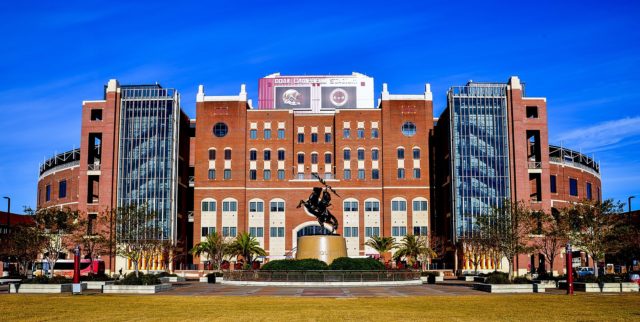

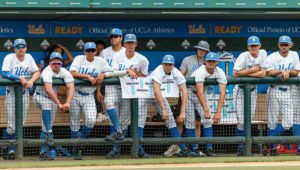
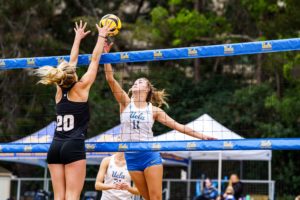
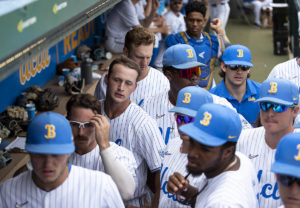
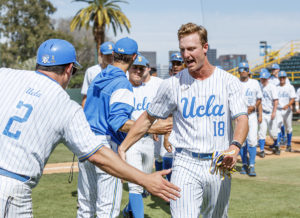
Comments are closed.